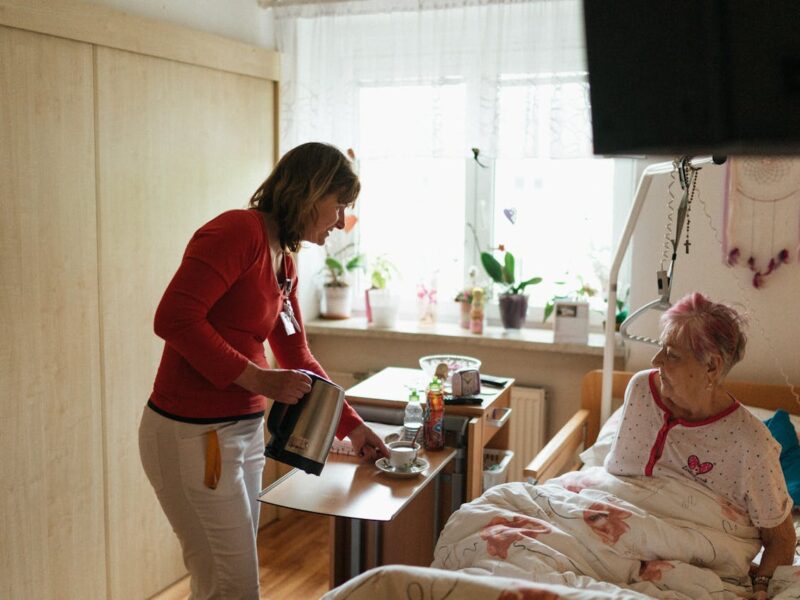Residents of nursing homes are known to suffer from a variety of illnesses, ranging from influenza to urinary tract infections. Among these are bedsores, which are injuries to the skin due to prolonged pressure.
If someone you know is a resident at an elder care facility, you should monitor them for bedsores. Understanding the stages of bedsores will enable you to help your elderly relatives if they face such ailments. It may also be possible for you to sue the elder care facility or the care provider for negligence. Consider hiring a lawyer if you’re thinking about seeking legal action.
Stage 4 bedsores
A bedsore can occur in any part of the body. It is normally known to develop in the buttocks, back, arms, and legs of residents who are immobile or forced to stay in one position for prolonged periods.
When a bedsore is left untreated for a long time, it worsens, leading to severe skin damage. Blood flow to the skin can stop, leading to death.
Severe damage can cause the underlying bones and muscles to become visible. At this stage, the skin starts oozing pus and causing a foul odor.
Causes
An estimated 2.5 million Americans develop bedsores every year, and a high percentage of these cases are in nursing homes. Some of the reasons why this could happen are:
- Residents not adequately cared for
- Dehydration or malnutrition, which, when untreated, prevents healing and worsens sores
- Residents are left immobile for long periods of time without changing positions
Often, senior citizens have declining cognitive and motor skills, which give rise to wide-ranging issues, from an inability to speak clearly to permanent disability. This may prevent them from moving, which may lead to the development of bedsores.
Symptoms
Here are some common symptoms of bedsores you should watch out for:
- Skin that differs in temperature from the surrounding area
- Blackened or dark skin
- Exposed wounds
- Red patches of skin
- Pus
- Swollen skin
If you see these signs in a relative, there is a chance they have a bedsore. You should contact a medical provider and have them take adequate measures to prevent the condition from worsening.
Prevention and Treatment
Monitoring residents regularly for signs of bedsores can help prevent them. Regularly moving immobile residents to different positions reduces the pressure on the skin.
Treatments for bedsores include:
- Antibiotics: Treating patients with antibiotics helps prevent the spread of infection due to bacteria
- Debridement: Removing infected skin prevents the condition from worsening
- Skin grafts: Replacing damaged skin with healthy skin from another part of the body
It can take anywhere between 2-4 months for a stage 4 bedsore to heal.
How do stage 4 bedsores lead to death?
While the bedsores themselves don’t cause death, it’s the body’s attempt to fight infection that does.
Exposed wounds increase the probability of contracting a deadly infection. Osteomyelitis and Cellulitis are bacterial infections that arise due to bedsores.
When the body is unable to get rid of toxins due to infection, renal failure, sepsis, and shock occur.
These conditions can all eventually lead to death, as they are difficult to treat.
Legal implications
Under the law, employees of elder care facilities can be classified as medical professionals and can be sued for negligence if they fail to notice or treat bedsores on time.
Caregivers are required to provide a standard of care for residents, failing which they can be charged with a medical malpractice claim.
If a resident dies due to the conditions arising from a bedsore, this can also be filed as a wrongful death case.
You should consider hiring a lawyer to help you understand the specifics of the law and how it applies to your case.
Conclusion
It is the duty of caregivers to provide adequate care so that such ailments don’t develop or worsen. They should also monitor residents for signs of illness regularly.
However, if you find that someone you know has progressed to a stage 4 bedsore, you should seek medical and legal help. Negligence at nursing homes can be charged as a felony, depending on the circumstances, so having a competent lawyer will help your case.







